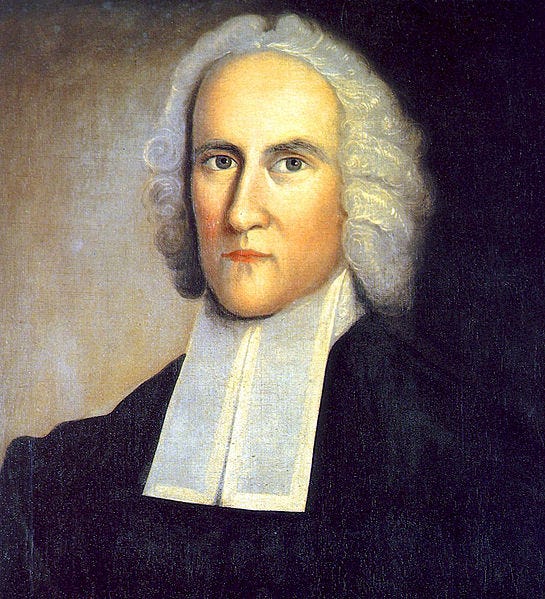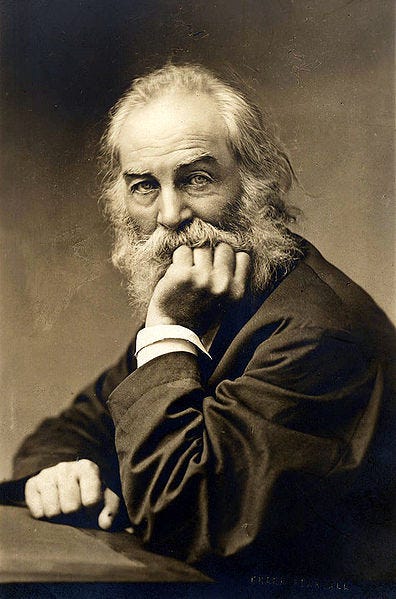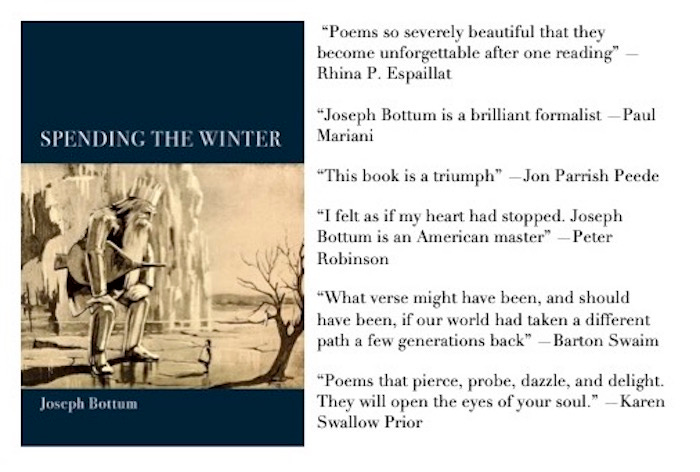Today’s Poem: A Noiseless Patient Spider
Jonathan Edwards, Walt Whitman, and the last days of natural philosophy

In 1723, the twenty-year-old Jonathan Edwards (1703–1758) — whom we may recall chiefly as the author of the 1741 “Sinners in the Hands of an Angry God,” the most enduringly famous sermon of the First Great Awakening in America — sent to Paul Dudley, a Massachusetts resident but also a member Royal Society of London, an epistolary essay entitled “The Spider Letter.” Edwards’s acute observation of the habits of New England’s “flying” or ballooning spiders illuminates not only his dual interests in theology and what was then still known as “natural philosophy,” but also his placement on an intellectual timeline that begins with Aristotle, encompasses Isaac Newton, and ends — or begins to distill into what we think of simply as science — during Charles Darwin’s lifetime (1809–1882).

In the first half of the nineteenth century, both New England Puritanism and natural philosophy cast a long, twinned shadow in which Transcendentalism flourished, with its peculiarly American flavor of Romantic mysticism. But by the middle of the century, the Puritanism of Jonathan Edwards had given way to the Congregationalist pietism that Emily Dickinson, for example, found uncongenial in its demand that the seeker after the spiritual life renounce the concerns of the material world. By the end of the Civil War, natural philosophy, which covered a range of disciplines and aimed at articulating a reality composed of both matter and spirit, had begun more and more to speculate on the purely materialist and specialized level we associate with modern science.
As a response to this general development, Walt Whitman (1819–1892) composed (as Joseph Bottum has noted) his 1865 anti-science poem, “When I Heard the Learn’d Astronomer.” In 1868, he followed this protest with a poem drawing on Edwards’s old interest in natural philosophy.
Today’s Poem, “A Noiseless Patient Spider,” connects Whitman to the natural-philosophy tradition, if not the theology, of Jonathan Edwards, as it borrows and revises Edwards’s favorite figure, the ballooning spider. In “The Spider Letter,” Edwards marvels at the spider’s capacity to spin “sails” for itself and “fly,” and associates these marvels with the goodness of the Creator “who hath not only provided for all necessities, but also for the pleasure and recreation of all sorts of creatures.” For Edwards, natural philosophy serves a set of theological propositions, pointing both to their truth claims and to the divine presence that underwrites those claims.
Whitman’s poem comments on this impulse itself, similarly figured in the action of the spider but fundamental to the human soul: the need to “connect” “spheres” of knowledge, to synthetize and make sense of seen and unseen reality, and above all, not to be “isolated” in the cosmos of the individual mind.

The poem’s two five-line stanzas, though neither rhymed nor strictly metrical, echo the repetitive cadences of biblical poetry. Metrically, each five-line stanza moves from an accentual tetrameter in the first line to the accentual pentameter which suggests itself as a kind of baseline pulse in the poem. In the second stanza, however, line three expands to heptameter, while four and five contract to hexameter. The looseness of the meter echoes the uncertain but persistent movements of the spider, and then of the human soul, as it creeps, spins, ventures, and launches itself on slender filaments, hoping to catch, land on, and connect with something solid.
A Noiseless Patient Spider
by Walt Whitman
A noiseless patient spider, I mark’d where on a little promontory it stood isolated, Mark’d how to explore the vacant vast surrounding, It launch’d forth filament, filament, filament, out of itself, Ever unreeling them, ever tirelessly speeding them. And you O my soul where you stand, Surrounded, detached, in measureless oceans of space, Ceaselessly musing, venturing, throwing, seeking the spheres to connect them, Till the bridge you will need be form’d, till the ductile anchor hold, Till the gossamer thread you fling catch somewhere, O my soul.






Wonderful. Aptly describes my wandering through Substack.
Thanks for this! Whitman's poem portraying the spider and then the soul's repeated launchings of filaments hoping to catch somewhere in the measureless oceans of space brought me a frisson of fear. It reminded me of how scary my life was when I thought I was on my own. But that was before I came to know the universe is not empty but is filled with the glory of our loving God.